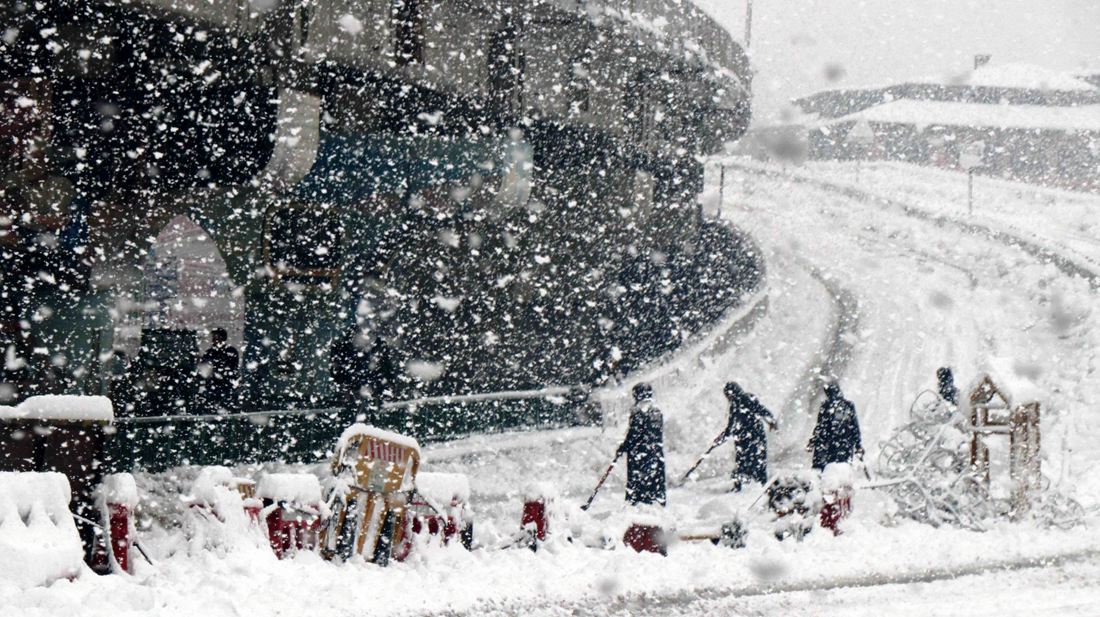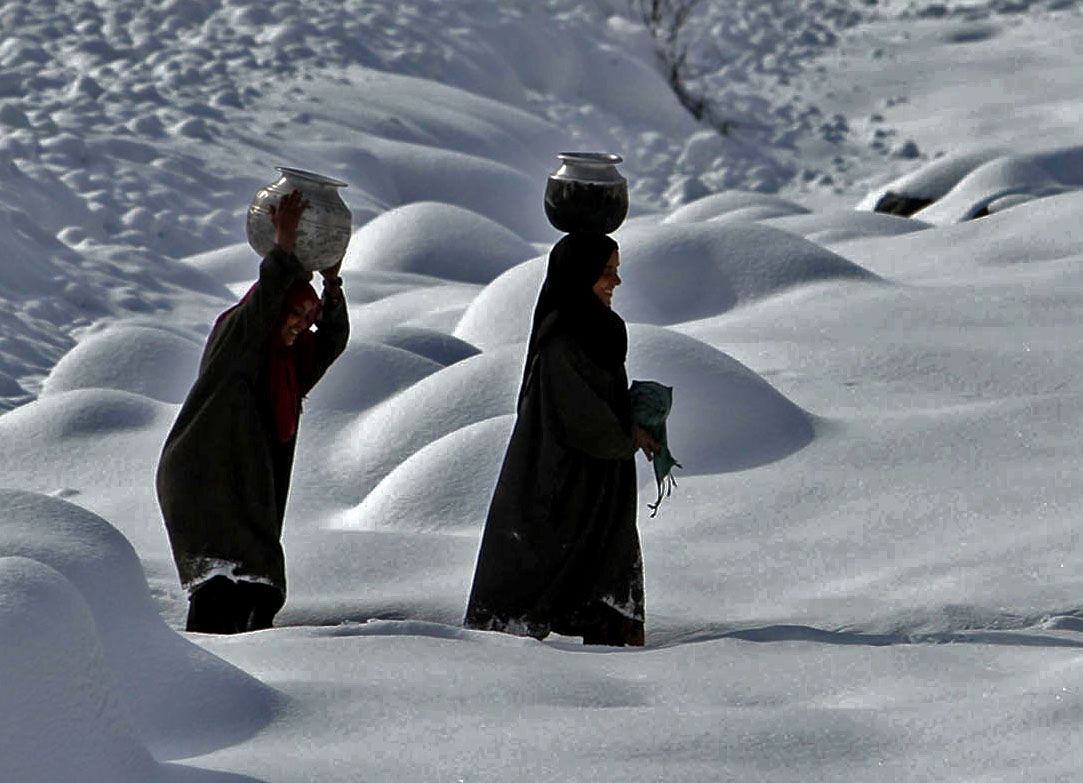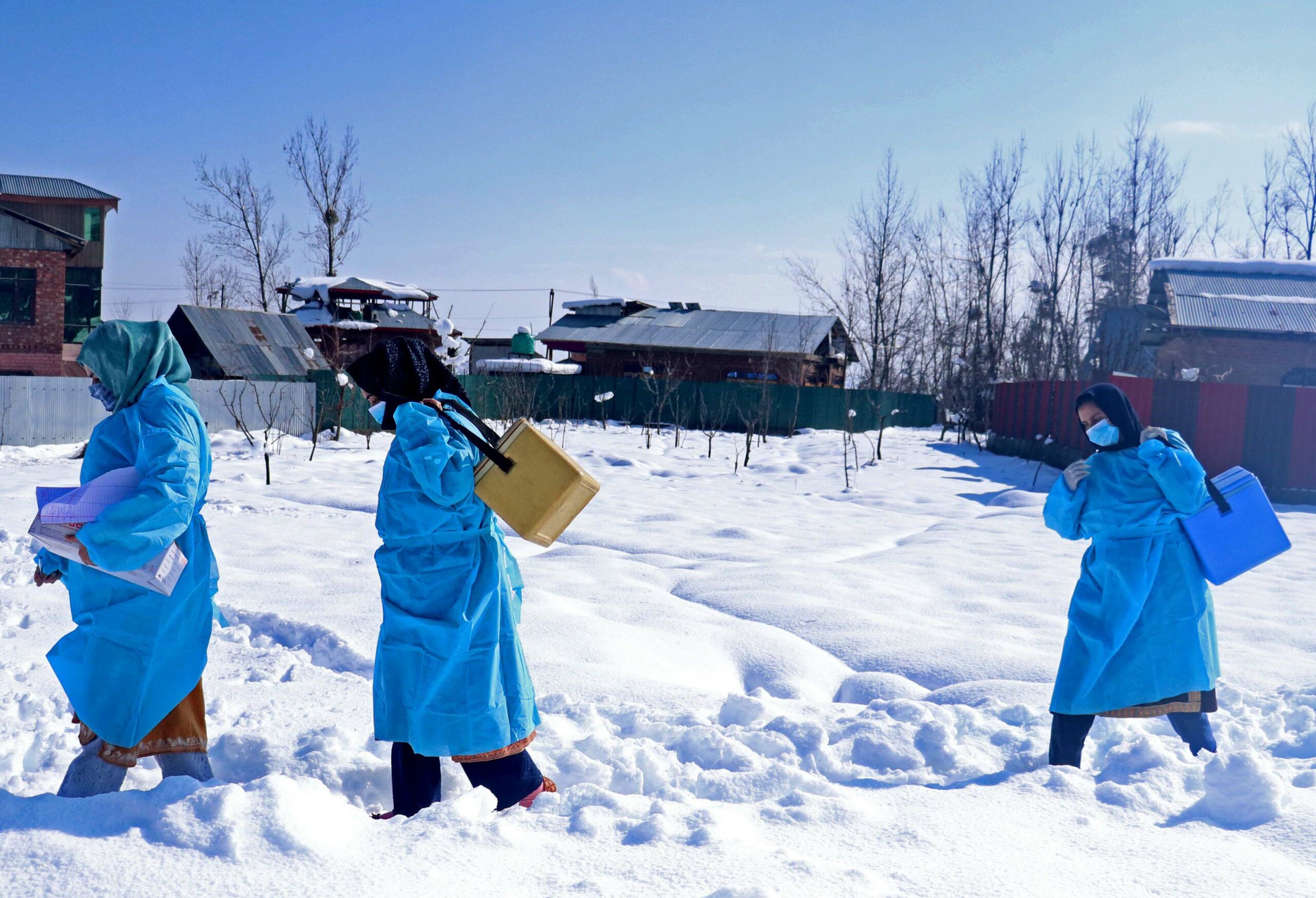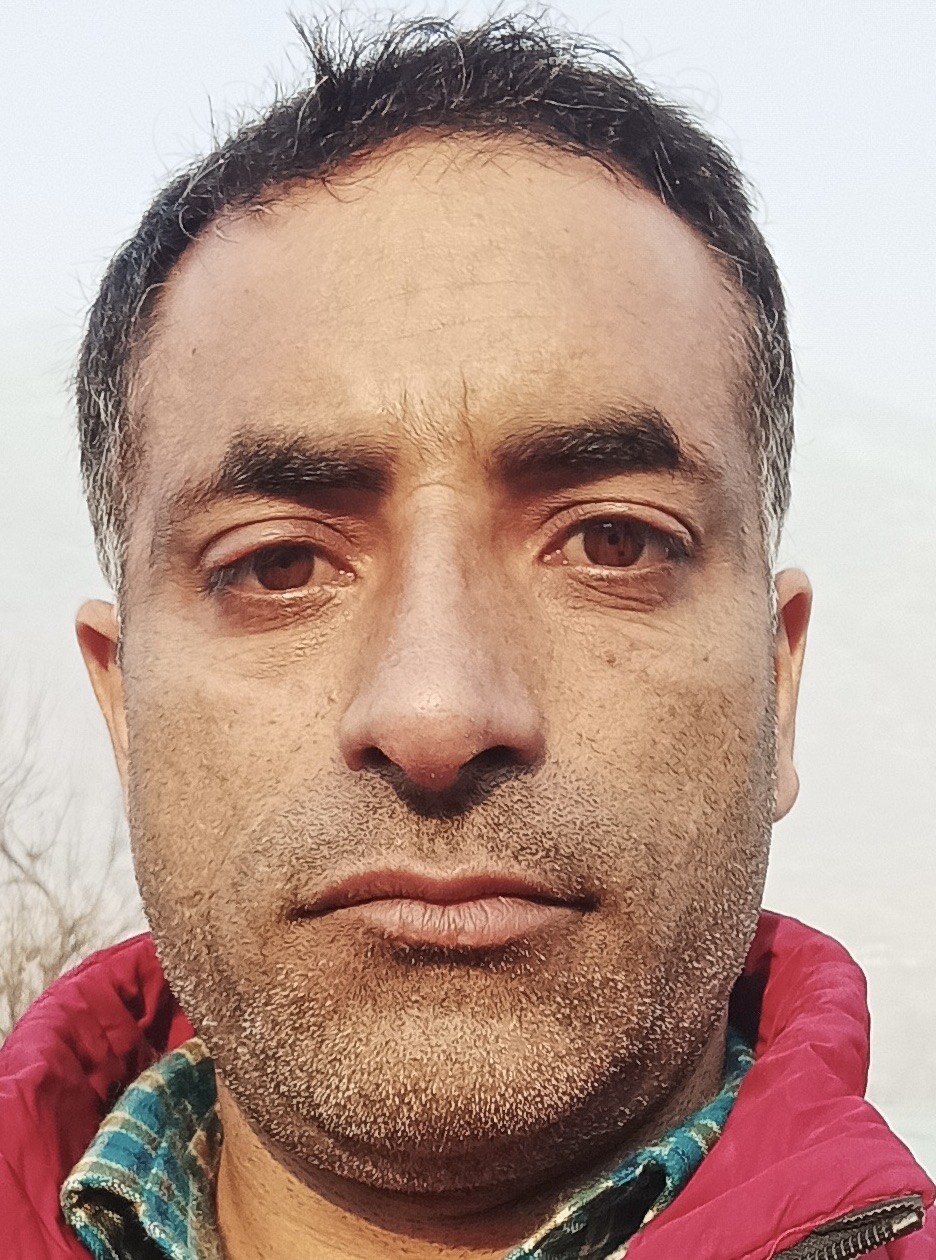by Rayees Ahmad Kumar
The winter season presents particularly tough experiences for residents in far-off and far-flung areas. Roads leading to district headquarters remain blocked for weeks, and at times, months. The resulting transportation challenges contribute to dire consequences, especially for the sick and expectant mothers.

The intense cold of the forty days known as Chillai Kalan has settled into the landscape of the valley. The mountain peaks, expansive green meadows, and pristine water bodies have enchanted people worldwide for centuries. Traders, scholars, and rulers have sought refuge in Kashmir during the scorching summer days, captivated by its pleasant climate and enthralling beauty.
The renowned Persian scholar and poet Amir Khusro encapsulated the sentiment with his famous couplet: Agar Firdous Bar Roye Zamin Ast, Hame Asto Hame Asto HameAst, (If there is heaven on earth, it is here, it is here, and it is here).
The harshness of Chillai Kalan poses challenges for a significant portion of the resident population, especially those belonging to the impoverished class. The chilling conditions create hardships, but the resilience of the people endures despite the adversities.
In preparation for winter, families in the region arrange woollen clothing, traditional Kangri for heating, and Hamam or insulated floorings for their homes to combat the harsh cold. The absence of reliable electricity, coupled with frequent power outages, renders electrical gadgets ineffective during challenging times.
Kangri, a traditional heating method, becomes essential for providing warmth to individuals in these adverse conditions. The logistical challenges of winter preparations place a substantial burden on household budgets, with a significant portion of annual income allocated towards purchasing and organising winter essentials.
For those facing financial constraints, enduring the chilly winter in Kashmir becomes an arduous task as they cannot afford expensive luxury items and electrical gadgets. Affluent individuals effortlessly procure charcoal and timber items from the market, while those with limited means work diligently to produce these essential items for the upcoming winter.
Government employees and some traders, who have ample opportunities to work during the winter, may experience the challenges of Chillai Kalan. However, much of the working and unskilled labour class, with limited employment opportunities in Kashmir during winter, either migrate to Jammu and other states in search of work to improve their economic condition or endure the hardships of winter silently.
The affluent segment of society often spends the harsh winter period in Jammu or Delhi, escaping the chill and living lavishly. They equip their homes with various appliances and gadgets to ensure comfort. In contrast, economically disadvantaged individuals, constrained by meagre resources and limited income avenues, endure a challenging winter in the valley. While the affluent prepare different dishes for daily meals during winter, those facing economic hardships experience a more modest and challenging existence during this season.

Families in the region take measures to ensure a varied and satisfying diet for their loved ones. Affluent households procure chicken, mutton, red meat, fish, and dairy products, enhancing the culinary experience for their members.
Conversely, economically disadvantaged families heavily depend on the preservation of sun-dried vegetables during the summer season. This centuries-old practice aims to secure essential food items, particularly sun-dried vegetables, for the challenging days of Chillai Kalan, as the National Highway—the sole link between the valley and the outside world—frequently faces closures due to heavy snowfall.
A diverse range of sun-dried vegetables, including brinjal, tomatoes, spinach, collard greens, and bottle gourds, has been a staple during Chillai Kalan to address potential food shortages. Despite recent warnings from local medical professionals about the potential carcinogenic effects of these sun-dried vegetables, residents of the valley continue to prepare a mixed curry of sun-dried bottle gourds and chickpeas. This traditional dish is believed to offer protection against a spectrum of infections and chest-related disorders.
Notably, sun-dried dandelion leaves hold significance in the winter diet. They are specifically served to both lactating and pregnant women due to their perceived substantial health benefits, a practice deeply ingrained in the local culture.
Winter in the region brings a series of challenges, notably the frequent disruption of power lines due to heavy snowfall, causing considerable inconvenience for the residents. The extended periods without electricity, which follow intense snowfall, test the patience of the valley inhabitants. Despite the strenuous efforts of Power Development Department (PDD) officials, the restoration of power often takes days, disrupting daily life.

The impact of power outages during Chillai Kalan becomes particularly pronounced for students, as the academic session has been shifted to March to align with a uniform schedule for the entire country. The absence of a consistent power supply poses a significant disadvantage for children preparing for their annual examinations.

In addition to power disruptions, the blockage of the national highway compounds the challenges faced by valley dwellers during winter. Prolonged halts in vehicular traffic led to unscrupulous shopkeepers and traders creating artificial shortages of essential goods, driving up prices. This economic exploitation further exacerbates the financial struggles of those already grappling with poverty.
The winter season presents particularly tough experiences for residents in far-off and far-flung areas. Roads leading to district headquarters remain blocked for weeks, and at times, months. The resulting transportation challenges contribute to dire consequences, especially for the sick and expectant mothers. Tragically, deaths during transportation to hospitals on makeshift carts are not uncommon in these remote areas due to the lack of adequate transportation and persistent road blockades.
(A teacher, the author lives in Qazigund, Kashmir. Ideas are personal.)















